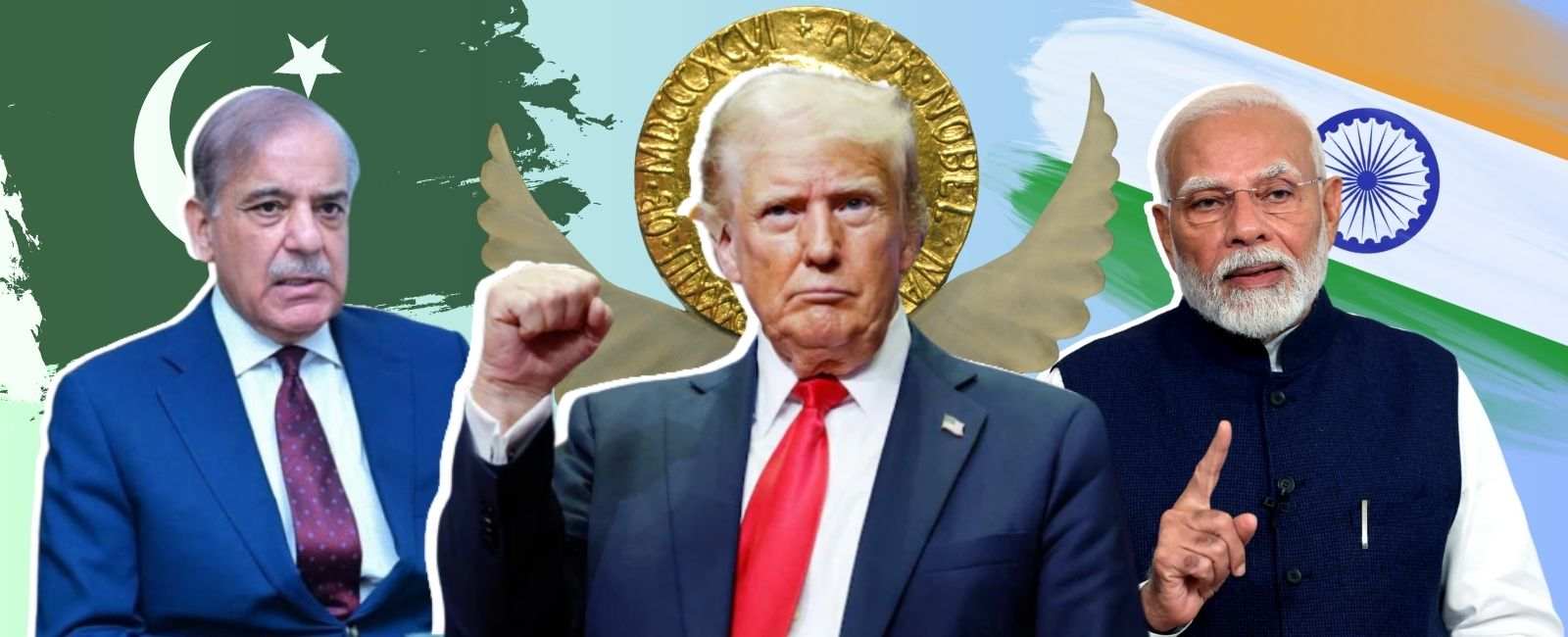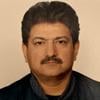Can Trump win a Nobel Peace Prize by brokering a deal on Kashmir?
Resolving the Kashmir issue is not just Donald Trump’s attempt to bag a Nobel Peace Prize but an important step towards South Asia's economic future — possibly emulating the EU model

United States President Donald Trump has been waiting for a long time for an invitation from Norway to receive a prestigious Nobel Peace Prize. Four former US presidents have already received the Nobel Peace Prize. Roosevelt was the first one, followed by Woodrow Wilson, Jimmy Carter and Barack Obama. In the final months of his 2024 campaign, Trump repeatedly mentioned Obama’s Nobel Peace Prize, complaining that he did not deserve the award. A US congresswoman, Claudia Tenney, wrote a letter to the Nobel Peace Prize Committee in January 2024 and nominated Trump for the prize for his efforts to foster cooperation between Israel and some Muslim countries through the Abraham Accords. Another Republican Congressman, Darrell Issa, also nominated Trump for the Nobel Peace Prize.
Members of the parliament from sovereign states, university professors, foreign policy institutes and peace research institutes can nominate candidates for the Nobel Peace Prize. Interestingly, Trump nominated himself for the Nobel Peace Prize many times. Trump first made his case in 2019 when he said that he deserved the Nobel Peace Prize for his work on North Korea and Syria, but complained he probably would never get the honour. Trump again wanted the Nobel Peace Prize in 2020 for brokering a peace deal between Ethiopia and Eritrea, but the prize went to Ethiopian Prime Minister Abiy Ahmed. A Ukrainian member of the parliament from President Zelensky’s party, Oleksandr Merezhko, wrote a letter to the Norwegian Nobel Peace Prize Committee in November 2024 and nominated Trump for the prize for his efforts to make peace between Ukraine and Russia.
In February 2025, US National Security Adviser Mike Waltz said that President Trump is bound to win the Nobel Peace Prize. Addressing the annual Conservative Political Action Conference in Washington, DC, Waltz said: “This is the presidency of peace. He is going to end the war in Europe. He is going to end the war in the Middle East, and by the end of this all, we are going to have the Nobel Peace Prize sitting next to the name of Donald J Trump.”
Waltz ignored the fact that many European countries objected to a speech of Trump to the US Congress when he said that control of Greenland was essential for national security and international security. Greenland is a semi-autonomous Danish territory. Trump’s speech started a tension between Washington and Copenhagen. Danish Prime Minister Mette Frederiksen clearly said that Denmark would not give up Greenland to the US.
The fact is that there is no peace in the Middle East and Ukraine. Trump tried to force Ukraine to a ceasefire with Russia but failed. His meeting with Zelensky at the Oval Office on 28th February 2025 failed to produce any positive results. The 2025 Nobel Peace Prize announcement will come on 10th October, with the award ceremony on 10th December. Trump is not yet eligible for a peace prize, but he is still in the running. Nobody can deny the fact that he surprised the whole world on 10th May by announcing a ceasefire between the two nuclear powers of South Asia. Pakistan immediately acknowledged and welcomed the efforts of President Trump for the ceasefire, but India was reluctant to admit anything about his role.
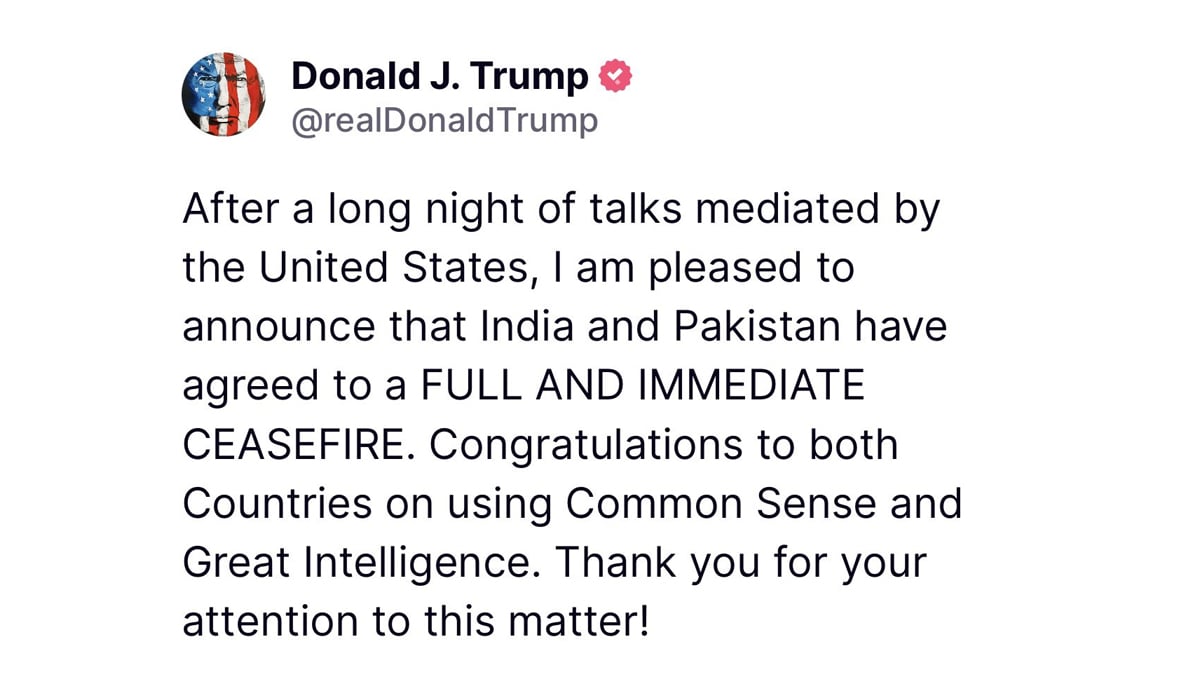
President Trump emerged as a peacemaker when he offered his services for brokering a deal on the Kashmir dispute. He said, “I will work with you both to see if, after a ‘thousand year', a solution can be arrived at concerning Kashmir. God bless the leadership of India and Pakistan on a job well-done”.
Modi claimed that it was Pakistan which contacted India for a ceasefire but Trump made a speech in Saudi Arabia and contradicted Modi's claims. Trump clearly reiterated he had brokered a historic ceasefire between India and Pakistan using trade as leverage, while urging his secretary of state to organise a nice dinner between the leaders of two nuclear-armed rivals.
Randhir Jaiswal, spokesperson of the Indian foreign ministry, tried to contradict Trump very carefully by saying that “there were conversations between Indian and US leaders on the evolving military situation, but the issue of trade did not come up in any of these discussions”. Prime Minister Narendra Modi remained silent about the role of Trump. Will India accept Trump as a mediator on Kashmir? In recent years, India has always declared Kashmir a bilateral issue and rejected the possibility of third-party mediation between New Delhi and Islamabad. India weakened its stance by committing big blunders after the Pahalgam attack on 22nd April.
First of all, India blamed Pakistan without any evidence within minutes of the terrorist attack in Pahalgam. Pakistan offered a transparent investigation by neutral experts, but India rejected this excellent proposal. Secondly, India suspended the Indus water treaty unilaterally in violation of international law. This water treaty survived the 1965, 1971 and 1999 Kargil wars between India and Pakistan. A sudden suspension of IWT by India in 2025 and then missile attacks on Pakistan raised alarm bells all over the world that Kashmir is no longer a bilateral issue between two nuclear rivals. India may admit it or not, but the US has been playing an important role in Kashmir for a long time. Most of the time, India was the beneficiary of the US role, not Pakistan.
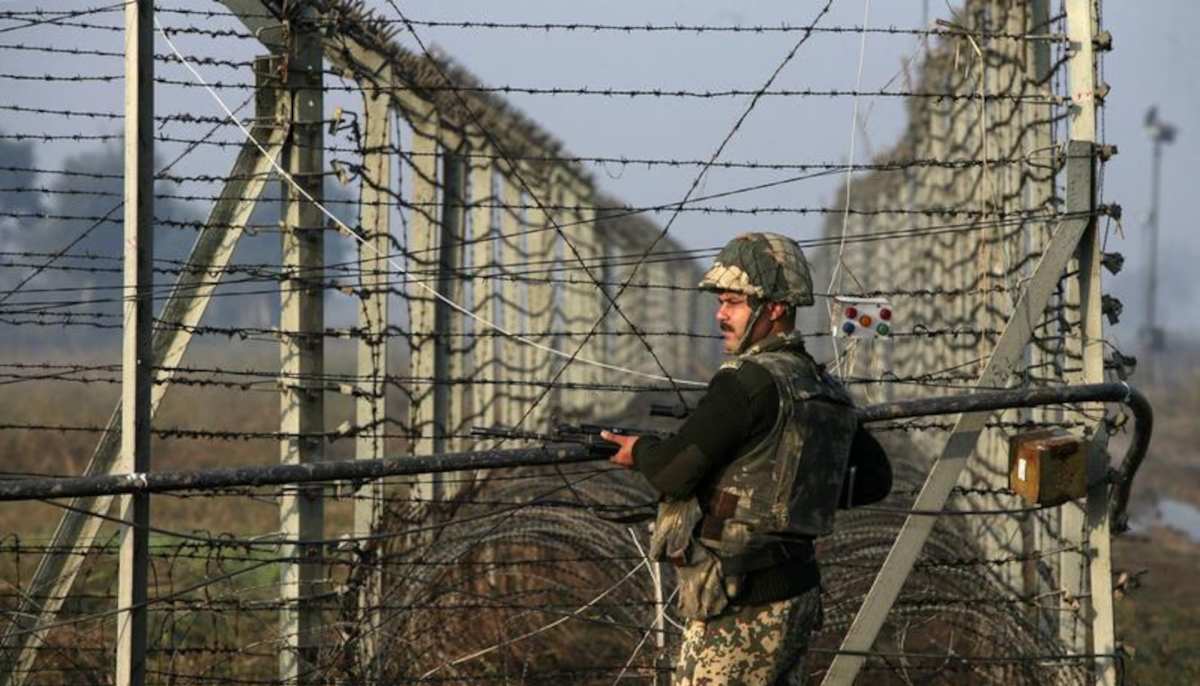
Former US ambassador to Czechoslovakia Josef Korbel was a delegate to the UN Commission for India and Pakistan in 1948. He wrote a book, Danger in Kashmir and its forward was written by Admiral Chester W Nimitz — the Commander in Chief of the US Pacific Fleet in the Second World War. From 1949 to 1953, Nimitz served as UN-appointed plebiscite administrator for Jammu and Kashmir. Korbel wrote in his book that "the accession of the State of Jammu and Kashmir to India cannot be considered as valid by canons of International law”. Korbel made it clear that the UN has a principled responsibility to seek a solution not only as the chief international agency for the maintenance of peace but also as an organ which was asked by India and Pakistan to intervene in the conflict. Madeleine Albright, daughter of Josef Korbel, became the first female US secretary of state in 1997. She played an important role in defusing tensions between India and Pakistan during the Kargil war of 1999.
History tells us that Pakistan has always tried to involve the US in resolving the Kashmir dispute. India has also involved the US many times and benefited, but never ever thanked the US. It was India which requested the United Nations for a ceasefire with Pakistan during the 1948 war. The US played an important role behind that ceasefire through its diplomats in the UN. Pakistani troops were very close to Srinagar in 1948, but the ceasefire helped India to maintain its control over Srinagar and Jammu. That was the reason Pakistani leaders reminded US leaders again and again about their promises made in 1948.
Former Pakistani prime minister Huseyn Shaheed Suhrawardy made a deal with US president Eisenhower in 1957. Suharwardy allowed the US Air Force to use Badabeer airbase near Peshawar for intelligence gathering about the Soviet Union, and Eisenhower agreed to play a role in the solution of the Kashmir dispute. A joint statement following discussions between the two leaders was issued by the US President's Office on July 13, 1957, which clearly mentioned Kashmir and the distribution of water from the Indus River. The statement said that the Kashmir dispute should be resolved according to the decisions of the United Nations, and the dispute over the Indus water will be resolved by the World Bank. This US-Pakistan joint statement was a big diplomatic victory of Pakistan over India but, unfortunately, Suharwardy was forced to resign in October 1957.

The World Bank brokered a deal between India and Pakistan through the Indus Water Treaty in 1960. India was the beneficiary of the Indus Water Treaty because Pakistan lost control over three important rivers. Historical evidence proves that the deal was actually brokered by the US from behind the scenes and that’s why it survived three wars between India and Pakistan. Pakistan had a golden chance to liberate Kashmir during the 1962 India-China war. It was US president John F Kennedy who stopped Pakistani president General Ayub Khan not to attacking India with a promise that the Kashmir dispute would be resolved. India faced a humiliating defeat from China in that war. Nehru was forced by Kennedy to start talks with Pakistan. Immediately after that war, Pakistani foreign minister Zulfikar Ali Bhutto and Indian FM Swaran Singh started talks under the auspices of the American and British governments, but unfortunately, Kennedy was assassinated in 1963. India and Pakistan had another war in 1965 because the US failed to fulfil its promises made to Suharwardy and Ayub Khan.
US president Nixon tried to make a peace deal between India and Pakistan in 1971 but failed. Pakistan was broken in 1971 and accepted Kashmir as a bilateral issue through the Simla agreement signed in 1972. India violated the Simla agreement in 1984 by occupying the Siachen heights. Pakistan did the same in 1999 by occupying some heights in Kargil in 1999 and a war was started between the two nuclear rivals. It was again the US which brokered a ceasefire between India and Pakistan in 1999. Former US deputy secretary of state Strobe Talbott wrote the details of the 1999 ceasefire in his book, Engaging India: Diplomacy, Democracy and the Bomb. US president Bill Clinton was the mediator between India and Pakistan. He promised Nawaz Sharif that the US would play its role in Kashmir after the ceasefire in July 1999. The government of Nawaz was toppled in October 1999. The history of 1957 was repeated in 1999.
There was another war threat between India and Pakistan after Pulwama attack in 2019. Indian Air Force bombed Pakistani territory near Balakot, and finally, the Pakistan Air Force (PAF) shot down an Indian jet. One Indian pilot, Abhinandan, was captured by Pakistan. President Trump played an important role in quietly de-escalating the situation, and the Indian pilot was returned back. The threat of war was averted. Again, India was the beneficiary of the third-party mediation because its captured pilot returned back home safely.
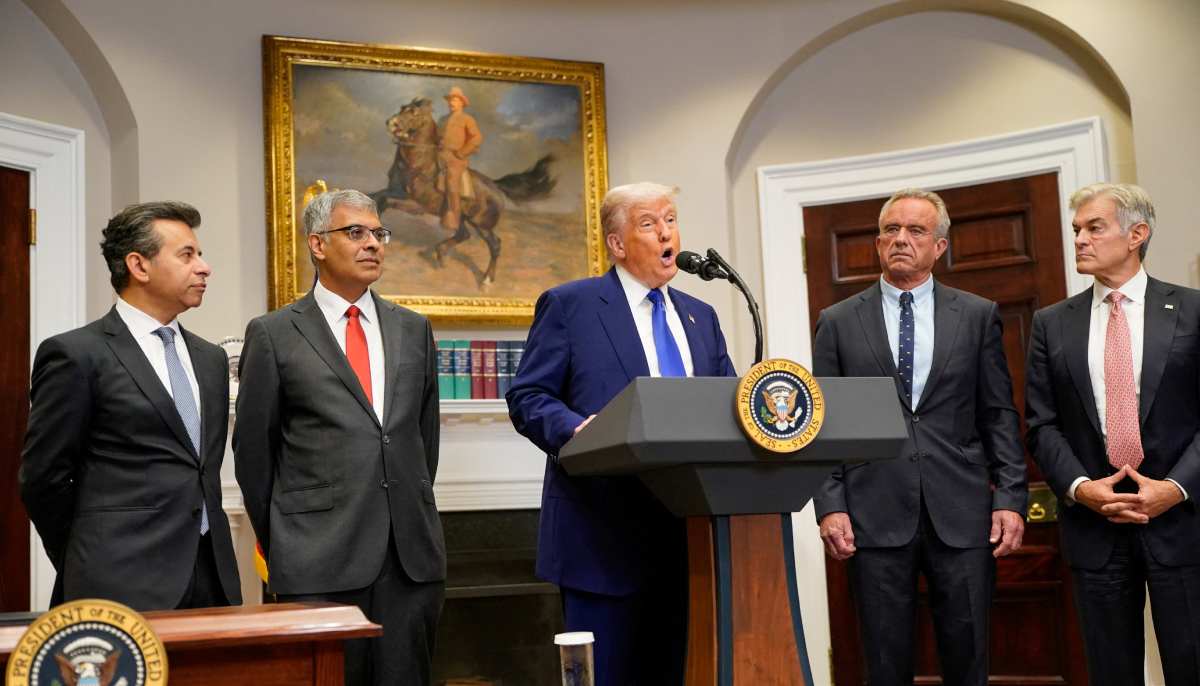
We can criticise Trump on many issues, but we have to admit that he saved South Asia from a nuclear war in May 2025. We must acknowledge that this time, Saudi Arabia, Turkey and the UK also helped Trump to force Pakistan and India to a ceasefire. Now, this is not only a moral but a political obligation of the US administration to play a role in the resolution of the Kashmir issue. Right from Eisenhower and Kennedy to Clinton, many US presidents made promises on Kashmir with Pakistan and practically facilitated India. Trump is doing nothing new. By mentioning Kashmir, he is only trying to fulfil a promise Eisenhower made with Pakistan in 1957. He can tell India that you benefited from third-party mediation in 1962, 1999 and 2019. Why are you not admitting my role in a ceasefire in 2025? No doubt, Trump provided a face-saving to Modi through a ceasefire because Modi contacted the US for the ceasefire.
Trump can also explain to India that if the Kashmir dispute is resolved, the size of its benefits will be much bigger than Pakistan's. Resolution of the Kashmir dispute is not only about a Nobel Peace Prize for Trump. It is about the economic future of South Asia, which can ultimately follow the model of the EU. If India is not ready to solve the Kashmir dispute through talks, then Pakistan is ready for a war again. Mind it that this time, Trump will not be available to India for any face-saving.
Hamid Mir is a senior journalist, anchor, and columnist, associated with Geo News. He posts on X@HamidMirPAK
Header and thumbnail illustration by Geo.tv



